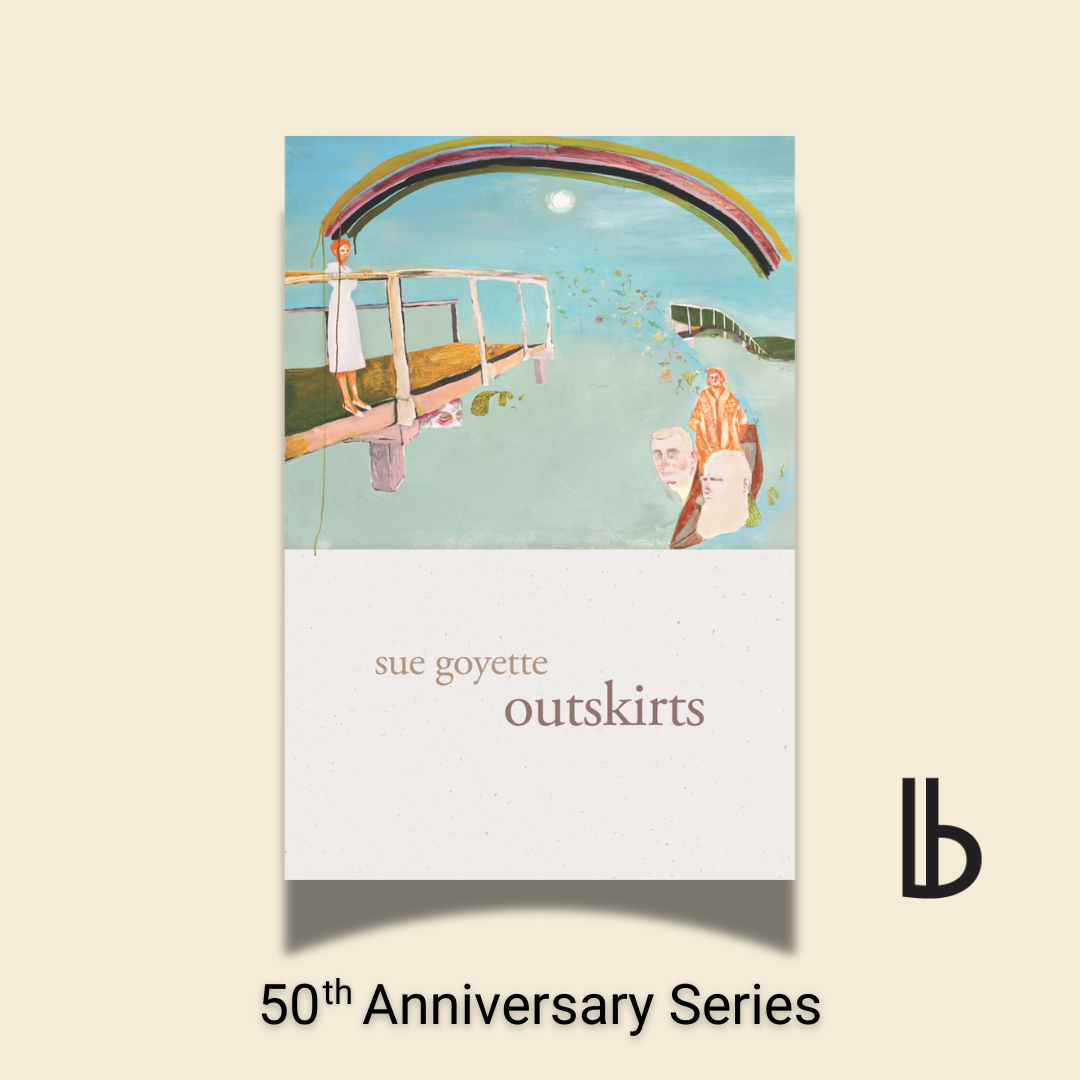50th Anniversary, Blog
Brick Books 50th Anniversary: Brilliant and Timeless Books to Take Another Look At—outskirts

Alive and Thriving for 50 Years
We’re delighted to continue our 50th anniversary series this month with Sue Goyette’s outskirts. This months blog post is written by Annick MacAskill.
Founded in 1975 by poets Don McKay and Stan Dragland, Brick Books is marking its 50th anniversary in 2025. Keeping a poetry-only small press not only alive but thriving for fifty years in a capitalist culture is an unlikely feat, and we’re in the mood to celebrate. One of the ways we’ll be celebrating throughout the year is by publishing a series of blogposts by Canadian poets reflecting on titles from our backlist—brilliant and timeless books we’d love readers to take another look at.
outskirts
by Sue Goyette

Atmospheric, sensuous, and haunting, Sue Goyette’s third full-length poetry collection outskirts marks a transition in the poet’s career, combining the reverence and longing of earlier work (The True Names of Birds, Undone) with a new interest in longer sequences (“Erosion,” “Clear-Cut,” “outskirts”) that anticipate her book-length projects with Gaspereau Press (Ocean, The Brief Reincarnation of a Girl, Penelope, Anthesis).
Like much of her writing, outskirts showcases Goyette’s attention to the natural world and a penchant for long lines, as well as what is perhaps the poet’s most significant gift: a knack for metaphors so startling they almost shouldn’t work. Re-reading this collection, I was drawn in particular to Goyette’s description of the Nova Scotian fog, dubbed in the first of three “fog” poems a “low prowl of Atlantic rooting / through the city like a bear.” There is a ferocity in this description, reflected in the speaker’s perception of her broader environment: “Halifax, we’ll agree, is a hard haunted town. The / ghost of green, a long ago season” (“Mission”). Later, in the second “fog” poem, the emblematic Haligonian fog is in dutiful service to its surroundings—“polishing the streets on its hands and knees”—while in the final poem by the same name, it is simply all-consuming:
It’s the ocean, listening. It watches you rub your forehead and look
back at it. It presses against the trees until you can no longer see
your neighbours. Now, you’re an island.
So strangely does Goyette find the uncanny in the everyday, the mysterious and enigmatic in the concrete; so strangely does her evocation of isolation offer her reader company and comfort.
Support Brick Books into its next 50 years
Looking to nourish your poetic spirit and become part of a literary legacy? Consider supporting Brick Books through our Annual Subscription. Learn more here.
